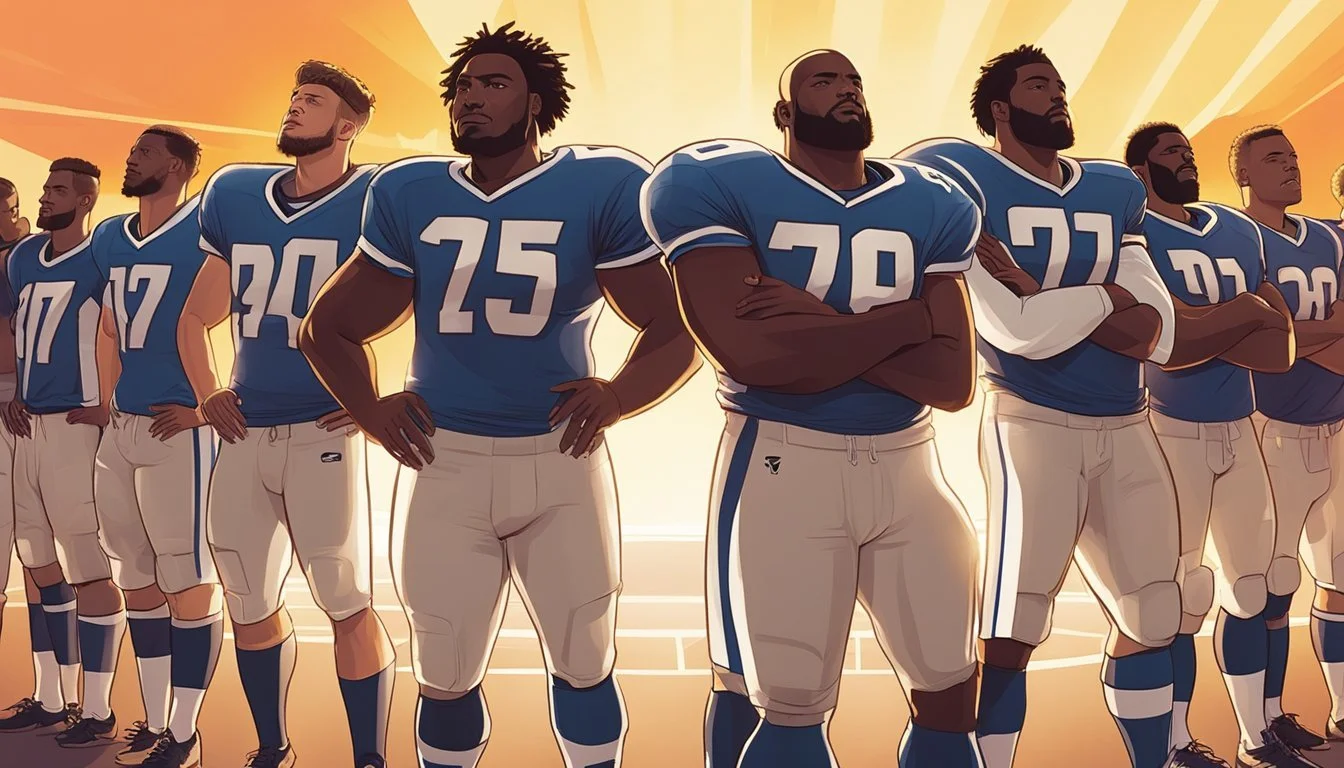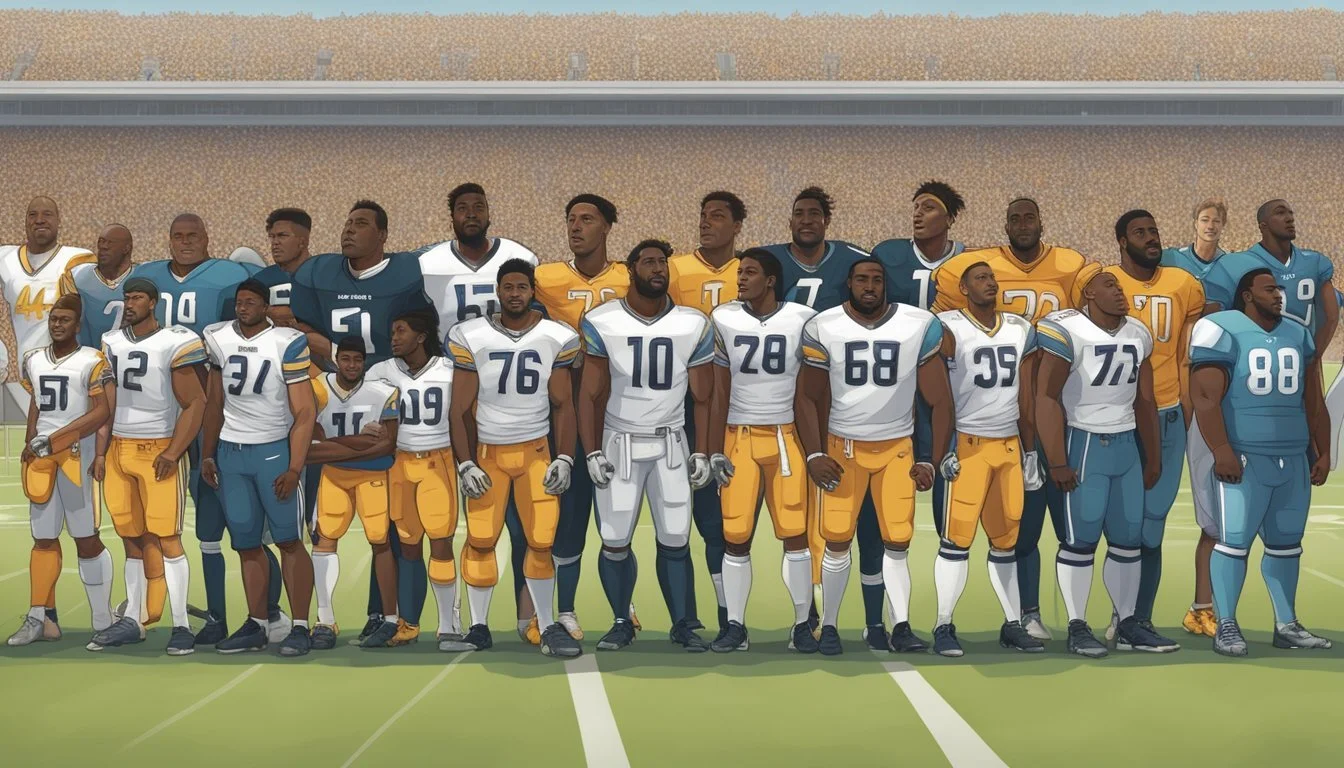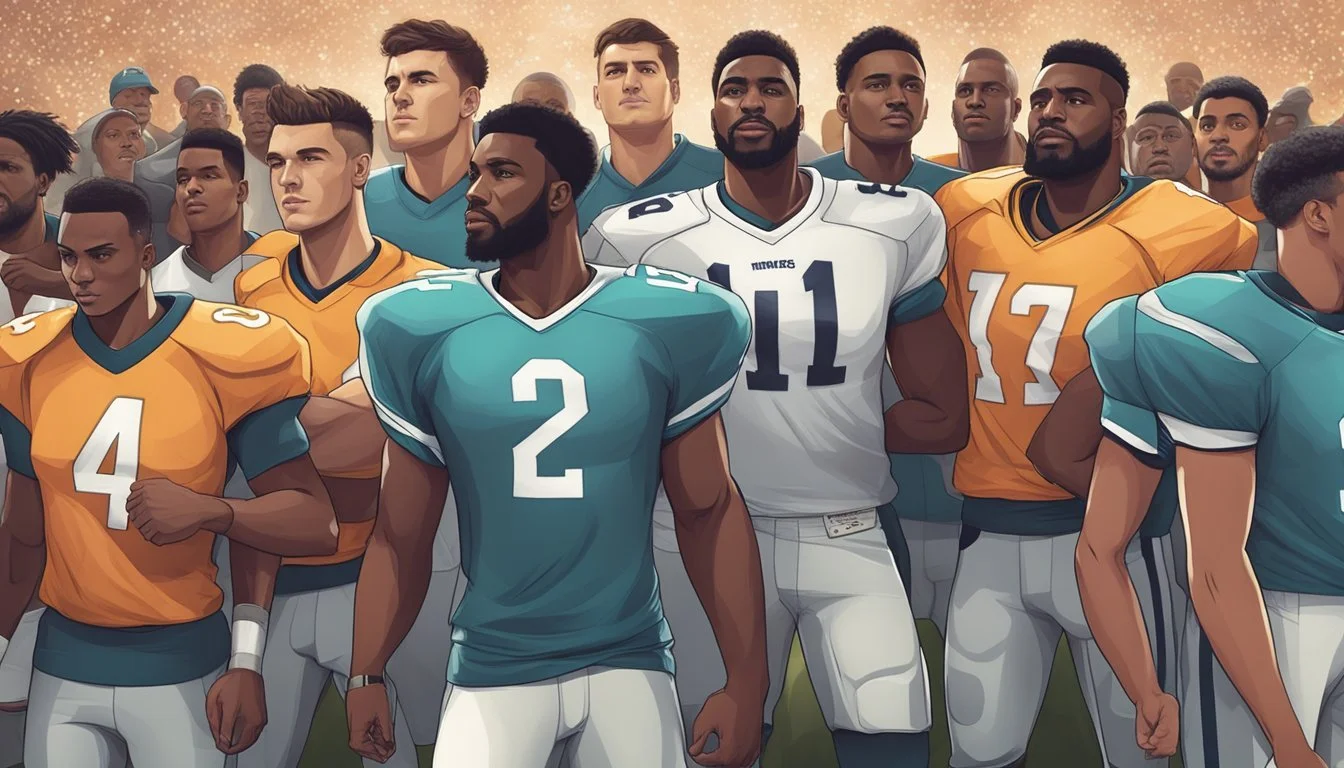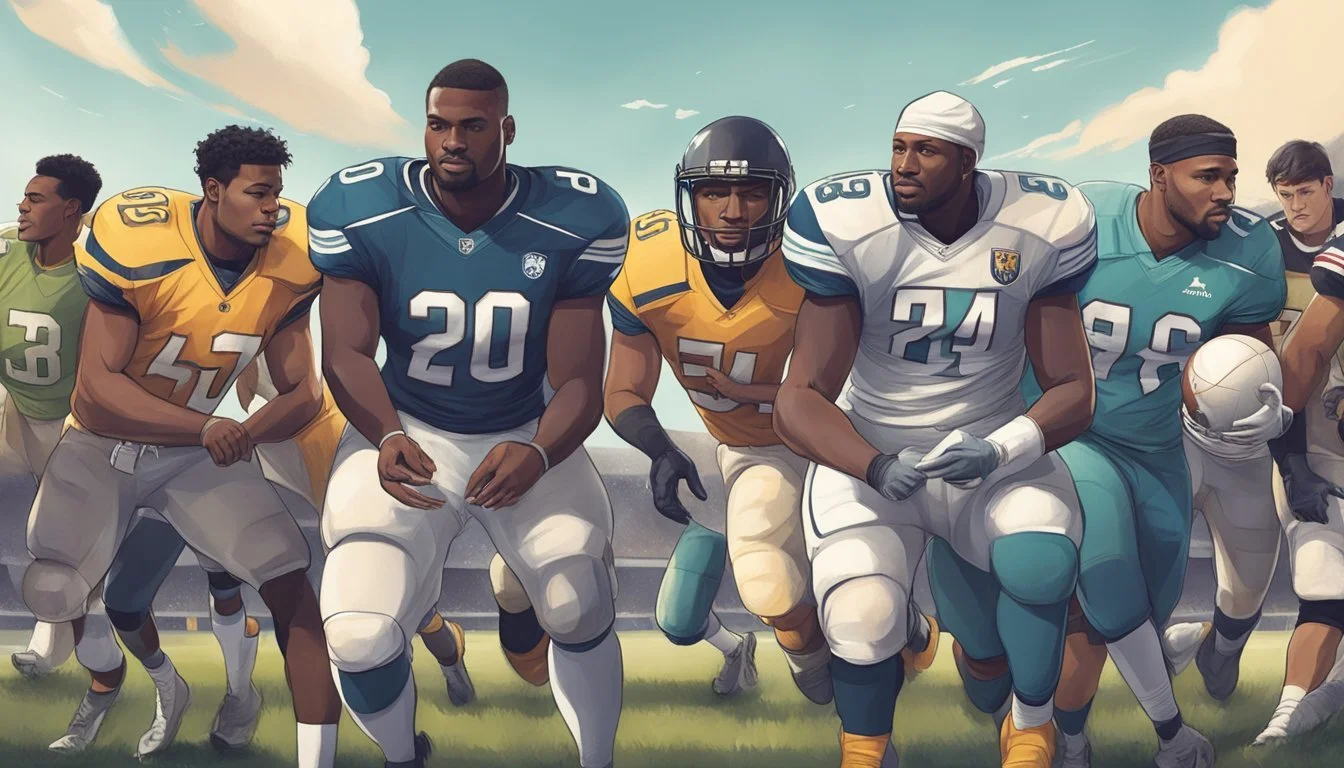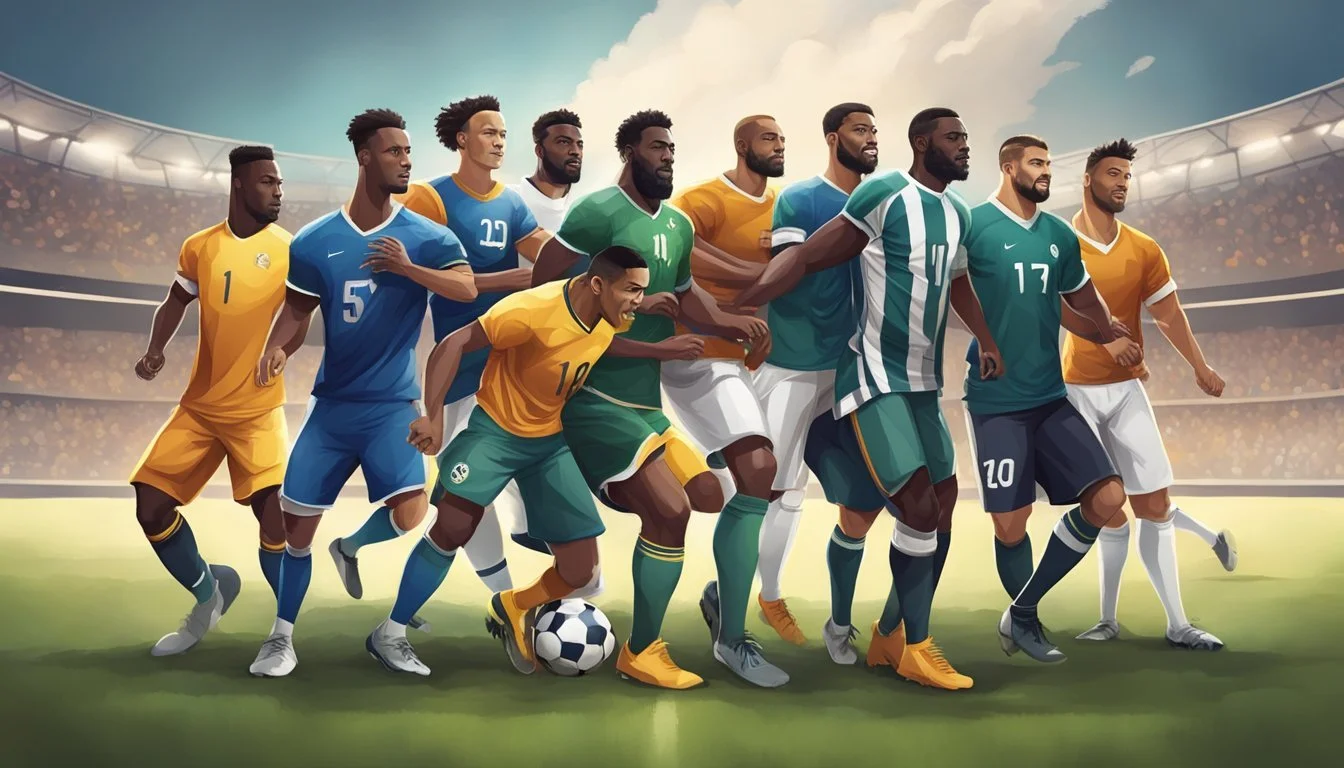Defying Racial Barriers: The True Tale of Remember the Titans
A High School Football Team's Journey to Unity
In the year 2000, a film captured the hearts of audiences worldwide with its portrayal of a high school football team overcoming racial divisions. "Remember the Titans" is based on the true story of the T.C. Williams High School football team in Alexandria, Virginia, during the early 1970s.
The movie depicts the challenges faced by Coach Herman Boone, a Black coach tasked with leading a newly integrated team, and his white assistant coach Bill Yoast. Together, they guided a group of young athletes from diverse backgrounds to unite as one team, both on and off the field, ultimately achieving remarkable success.
While the film takes some creative liberties, it remains rooted in actual events. The real-life Titans faced significant obstacles as they navigated racial tensions and worked to forge a cohesive team. Their journey serves as a powerful example of how sports can bridge divides and foster understanding between people of different backgrounds.
Background of 'Remember the Titans'
'Remember the Titans' is a sports drama film based on real events that took place in Alexandria, Virginia in 1971. The movie depicts the integration of T.C. Williams High School and its football team during a time of racial tension in the United States.
Historical Context
In 1954, the U.S. Supreme Court ruled racial segregation in public schools unconstitutional. Despite this, many schools remained segregated well into the 1960s and 1970s. Alexandria, Virginia faced this challenge in 1971 when the school board decided to integrate three high schools into one.
This integration coincided with heightened racial tensions across the country. Civil rights movements had made progress, but discrimination and inequality persisted in many areas of American life.
The newly integrated T.C. Williams High School became a focal point for these tensions, particularly within its football team.
Creation and Development
Disney produced 'Remember the Titans' in 2000, with Jerry Bruckheimer as producer and Boaz Yakin as director. The film's screenplay, written by Gregory Allen Howard, drew inspiration from the true story of the 1971 T.C. Williams Titans football team.
Denzel Washington was cast as Herman Boone, the team's African American head coach. Will Patton portrayed Bill Yoast, the former head coach who became Boone's assistant.
The filmmakers aimed to capture the essence of the team's journey while taking some creative liberties for dramatic effect.
Synopsis of the Film
'Remember the Titans' follows Coach Herman Boone as he leads the newly integrated T.C. Williams High School football team. The film portrays the initial racial tensions and conflicts within the team and the broader community.
Key plot points include:
Boone's appointment as head coach over Bill Yoast
The team's pre-season training camp
Growing camaraderie among players
On-field success despite off-field challenges
A tragic car accident involving a key player
The movie culminates with the Titans' undefeated season and state championship victory. It emphasizes themes of unity, perseverance, and overcoming prejudice through shared goals and mutual respect.
Principal Characters and Cast
The film "Remember the Titans" features a talented ensemble cast portraying key figures in the true story of T.C. Williams High School's integrated football team. Acclaimed actors bring to life the coaches and players who faced racial tensions and united to achieve success on and off the field.
Coach Herman Boone
Denzel Washington delivers a powerful performance as Coach Herman Boone, the African American head coach tasked with leading the newly integrated Titans team. Washington captures Boone's strict disciplinary style and unwavering commitment to unity.
Boone's character faces resistance from some players and community members due to his race. He implements tough training methods and insists on racial integration in all aspects of team life. Washington portrays Boone's determination to succeed despite the challenges, as well as his growing bond with the players.
Coach Bill Yoast
Will Patton portrays Coach Bill Yoast, the former head coach demoted to assistant when Boone is hired. Yoast, who is white, initially struggles with his new role but becomes a crucial ally to Boone.
Patton's performance shows Yoast's evolution from skepticism to support of Boone's methods. He acts as a bridge between Boone and the white players, helping to ease tensions. Yoast's character demonstrates the importance of setting aside personal pride for the greater good of the team and community.
Team Captains and Key Players
Ryan Hurst plays Gerry Bertier, the white team captain who initially resists integration but becomes a leader in uniting the team. Wood Harris portrays Julius Campbell, a black player who forms a close friendship with Bertier.
Ryan Gosling appears as Alan Bosley, a white player who struggles to accept his black teammates. Ethan Suplee plays Louie Lastik, a white player who embraces integration from the start. Donald Faison portrays Petey Jones, a talented black player adjusting to the integrated team.
These actors bring depth to their characters, showing the personal growth and changing relationships among the players as they overcome racial divides.
Themes of Unity and Equality
"Remember the Titans" powerfully illustrates how unity and equality can overcome deep-rooted prejudices. The film showcases the transformative impact of teamwork, strong leadership, and community support in breaking down racial barriers.
Overcoming Prejudice
The movie portrays the initial tension between black and white players as they are forced to integrate. Coach Boone implements strict policies to foster understanding, such as making players of different races room together at training camp. This strategy helps break down stereotypes and build relationships across racial lines.
As the season progresses, players learn to see beyond skin color and appreciate each other's talents and personalities. Gerry Bertier and Julius Campbell's friendship symbolizes this transformation, as they move from hostility to mutual respect and close friendship.
The film also shows how the team's unity influences the wider community, challenging long-held prejudices among parents, teachers, and local residents.
Teamwork and Community
The Titans' success on the field becomes a powerful metaphor for the benefits of racial integration. As players learn to work together, they achieve remarkable results, winning game after game against formidable opponents.
Coach Boone emphasizes that individual talent is not enough; the team must function as a cohesive unit to succeed. This lesson extends beyond football, showing how a diverse community can thrive when people work together toward common goals.
The team's victories begin to unite the previously divided town. Fans of all races come together to support the Titans, demonstrating how sports can serve as a catalyst for social change.
Leadership and Inspiration
Coaches Herman Boone and Bill Yoast exemplify strong, principled leadership in the face of adversity. Boone, as head coach, pushes his players to their limits while treating them equally regardless of race. His tough but fair approach earns respect and motivates the team to excel.
Yoast, initially reluctant to serve as assistant coach, becomes a crucial ally in promoting unity. His decision to stay with the team despite personal setbacks sets an example of putting the greater good above individual interests.
The film also highlights player leadership, particularly through captains Gerry Bertier and Julius Campbell. Their evolving relationship and eventual friendship inspire other team members to overcome their own biases and work together.
Cinematic Techniques
Remember the Titans employs powerful visual storytelling and an emotive soundtrack to bring its inspirational message to life. The film's technical elements work in harmony to portray racial tensions and team unity.
Direction and Cinematography
Boaz Yakin's direction emphasizes the racial divide through visual contrasts. He uses stark lighting and framing to highlight differences between black and white players early in the film. As the team grows closer, the visual palette shifts to warmer tones.
The cinematography captures the intensity of football action with dynamic camera movements. Slow-motion sequences punctuate pivotal moments on the field. Close-ups of players' faces convey raw emotions during tense confrontations and heartfelt conversations.
Yakin utilizes montages set to period music to efficiently show the team's growing bond over time. These sequences blend practice drills, locker room camaraderie, and off-field interactions.
Music and Soundtrack
The film's soundtrack features an array of classic 1960s and 1970s songs that evoke the era. Motown hits and rock anthems underscore key scenes, enhancing the emotional impact.
Trevor Rabin's original score blends seamlessly with the period music. His compositions add dramatic weight to crucial moments, particularly during the climactic state championship game.
Memorable musical moments include:
"Ain't No Mountain High Enough" during team-building exercises
"Spirit in the Sky" as the Titans take the field
"Na Na Hey Hey Kiss Him Goodbye" celebrating victory
Critical Reception
Critics praised Remember the Titans for its technical execution. Many reviewers highlighted the film's ability to balance sports drama with social commentary through effective cinematography and editing.
The movie's visual style drew comparisons to other acclaimed sports films. Some critics noted its use of lighting and color grading to reflect the story's emotional arc.
While a few reviewers felt certain scenes were overly sentimental, most agreed the direction and music enhanced the film's uplifting message. The soundtrack received particular acclaim, with several critics calling it one of the year's best.
Impact on Society and Legacy
"Remember the Titans" left an indelible mark on American culture, education, and social discourse. The film's portrayal of overcoming racial divisions resonated deeply with audiences and continues to influence perspectives on diversity and teamwork.
Influence on Pop Culture
The movie's success catapulted it into the realm of iconic sports films. Its memorable quotes and scenes became part of everyday conversation. The film's soundtrack, featuring classic 1960s and 1970s hits, enjoyed renewed popularity.
Sports teams at various levels adopted the film's motivational speeches and team-building exercises. "Remember the Titans" inspired other films and TV shows tackling similar themes of racial integration and sports.
Many athletes and coaches cited the movie as an inspiration for promoting unity within their teams. The film's depiction of Coach Boone became a model for leadership in diverse environments.
Educational Use in Schools
"Remember the Titans" found its way into classrooms across America as a teaching tool. Teachers used the film to spark discussions about civil rights, racial equality, and the power of cooperation.
Many schools incorporated the movie into their history and social studies curricula. It served as a starting point for lessons on desegregation and the challenges of integration in the 1970s.
The film's themes of teamwork and overcoming prejudice made it valuable for character education programs. Schools organized viewing sessions followed by group activities to reinforce the movie's messages.
Some educational institutions used the film to train staff on diversity and inclusion practices.
Lasting Messages
The movie's enduring appeal lies in its timeless messages about unity and personal growth. It demonstrated how shared goals can bridge racial and cultural divides.
"Remember the Titans" highlighted the importance of leadership in fostering inclusive environments. The film showed that change, while difficult, is possible through perseverance and mutual understanding.
Its portrayal of friendship forming across racial lines resonated with viewers of all backgrounds. The movie emphasized that talent and character matter more than skin color.
The film's message of "we are one team" became a rallying cry for diversity initiatives in various organizations. It continues to inspire people to challenge their preconceptions and embrace differences.
Challenges and Controversies
"Remember the Titans" faced scrutiny regarding its historical accuracy and contemporary relevance. The film's portrayal of events and characters sparked debates about representation and cultural impact.
Historical Accuracy
The movie took creative liberties with some historical details. Coach Herman Boone's character was portrayed more heroically than some accounts suggest. The film exaggerated the racial tensions within the team, as many players had already attended integrated schools. T.C. Williams High School's football program was already successful before Boone's arrival, contrary to the movie's depiction.
The timeline of events was compressed for dramatic effect. In reality, the integration process and team's success spanned several years, not just one season. Some characters were composites or fictionalized versions of real people.
Contemporary Criticism
Critics argued the film oversimplified complex racial issues. Some felt it relied too heavily on sports movie clichés and stereotypes. The portrayal of white characters as initially racist but quickly overcoming prejudice was seen as unrealistic by some viewers.
Questions arose about the film's focus on football as a solution to deep-rooted societal problems. Some critics pointed out that the movie glossed over ongoing racial inequality in education and other areas of life beyond sports.
The film's emphasis on male bonding and leadership was criticized for sidelining female characters and their perspectives on integration.
Conclusion
"Remember the Titans" stands as a powerful testament to the triumph of unity over division. The true story of the T.C. Williams High School football team exemplifies how sports can bridge racial divides and foster understanding.
Coach Herman Boone's leadership and the players' willingness to overcome prejudices transformed not just a team, but an entire community. Their journey reflects the broader struggles and progress of the Civil Rights era in America.
The film's enduring popularity speaks to its universal themes of teamwork, perseverance, and personal growth. It continues to inspire audiences decades after the events it portrays.
While some details were dramatized for cinematic effect, the core message remains authentic. The Titans' story serves as a reminder that change is possible when people come together with a common purpose.
This true tale of high school football transcends sports, offering lessons on integration, leadership, and the power of shared goals. It stands as a compelling chapter in American history, demonstrating how ordinary individuals can become catalysts for social change.

